Terry Venables will forever be remembered as the manager who oversaw the summer that brought football home.
The charismatic boss, who has died aged 80, enjoyed a colorful and controversial career, the undoubted highlight of which was bringing England within a penalty shoot-out of reaching the European Championship final on home soil in 1996 .
That match was his last as manager of the national team after he left the role to focus on his upcoming legal cases, but by the end of the year he was, perhaps characteristically, combining a new role as Portsmouth chairman with another as coach of Australia.
That ‘wheeler-dealer’ sequence landed Venables in court for his actions outside of football.
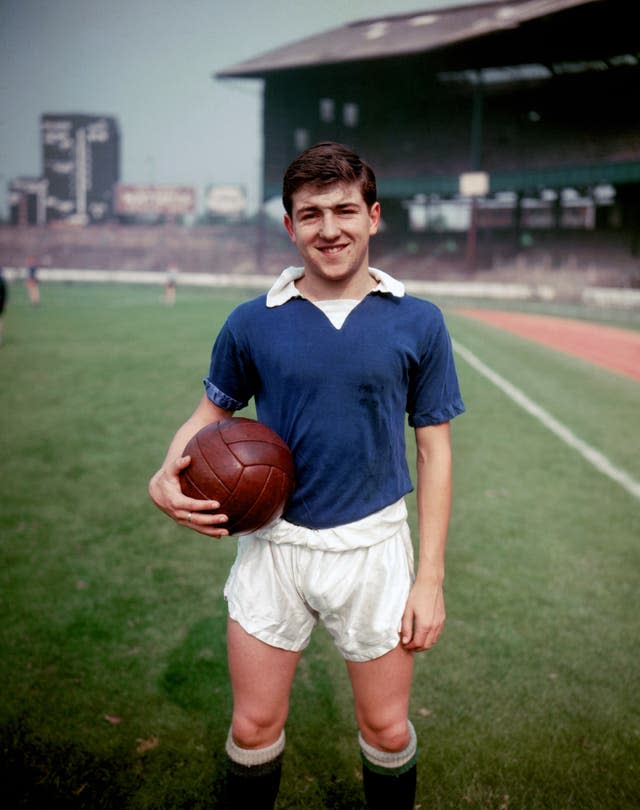
‘El Tel’, as he became known during his time as Barcelona manager, was also co-owner and manager of Tottenham, and was the subject of accusations of inappropriate business conduct, as well as claims that he once stopped Brian Clough paid.
The former midfielder was born in Dagenham, Essex, on January 6, 1943, as an only child.
After showing promise as a footballer, he joined Chelsea as an apprentice in 1958 before signing professional terms two years later, subsequently winning a League Cup winners’ medal in 1965 after a 3–2 win over Leicester.
He had earned his two England caps the previous year in matches against Belgium and the Netherlands, having represented his country at schoolboy, youth, amateur and under-23 levels.
It was his transfer to Tottenham in 1966 that led to his most successful spell as a player, winning the FA Cup the following year with a 2–1 victory over his former club.
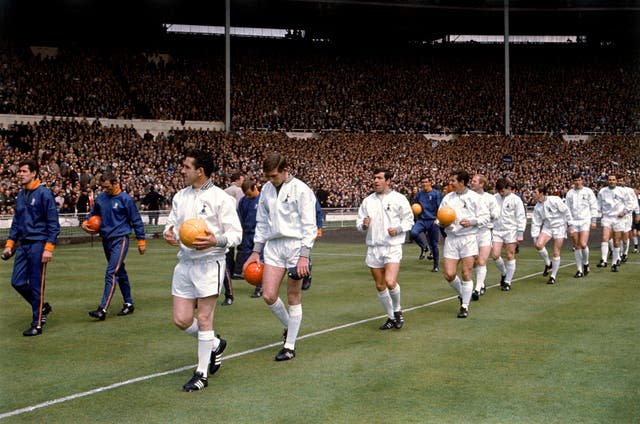

He left Tottenham for QPR in 1969 and moved to Crystal Palace five years later.
However, his talents were not only on the field.
During his playing career, Venables co-wrote detective novels, which were later turned into the TV series Hazell about a wisecracking cockney private detective. It ran for 22 episodes from 1978-79.
It turned out to be a considerably bigger hit than one of his early business ideas: the “Thingummywig,” a hat with a built-in wig so women could go outside without taking off their curlers.
After one season as a player at Palace, he retired and joined the coaching staff. In 1976 he was promoted to the role that proved to be his most natural fit: manager.
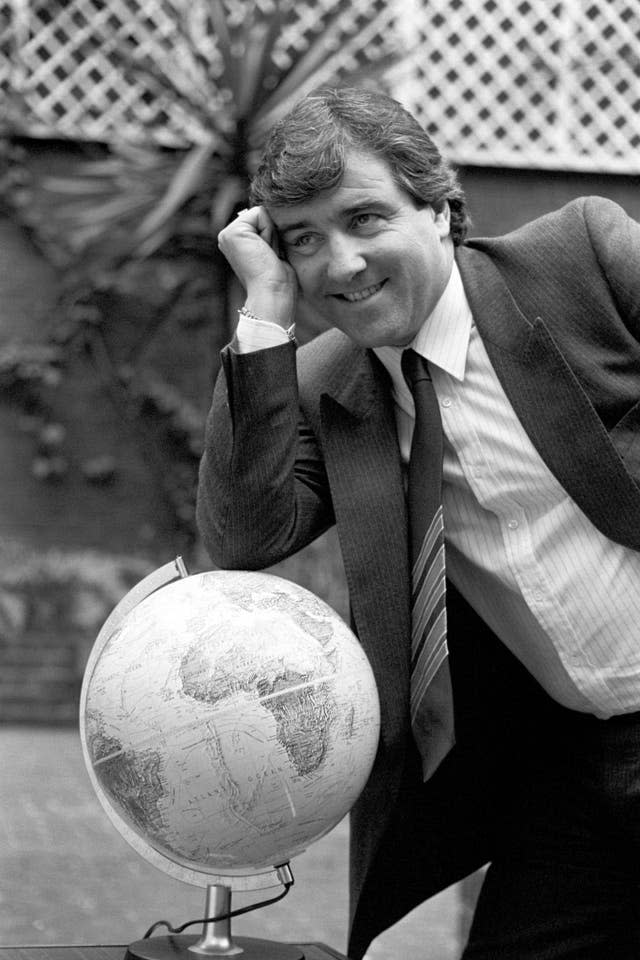

Venables needed just one year to guide Palace to promotion from the Third Division and just two more to secure the Second Division title.
In October 1980 he resigned to take charge of QPR, leading the second division side to the 1982 FA Cup Final, which they lost to Tottenham in a replay. The following season he guided them to the Second Division title, whilst becoming their major shareholder as well as managing director.
He led QPR to a fifth-place finish and qualification for the UEFA Cup in the 1983–84 season, but resigned in May 1984 to become manager of Barcelona.
He charmed the crowd at his first match by addressing them in Catalan and, importantly, in his first season he led the club to their first Spanish league title in eleven years.
Venables signed Gary Lineker and Mark Hughes during his time at Camp Nou and also sold Diego Maradona.
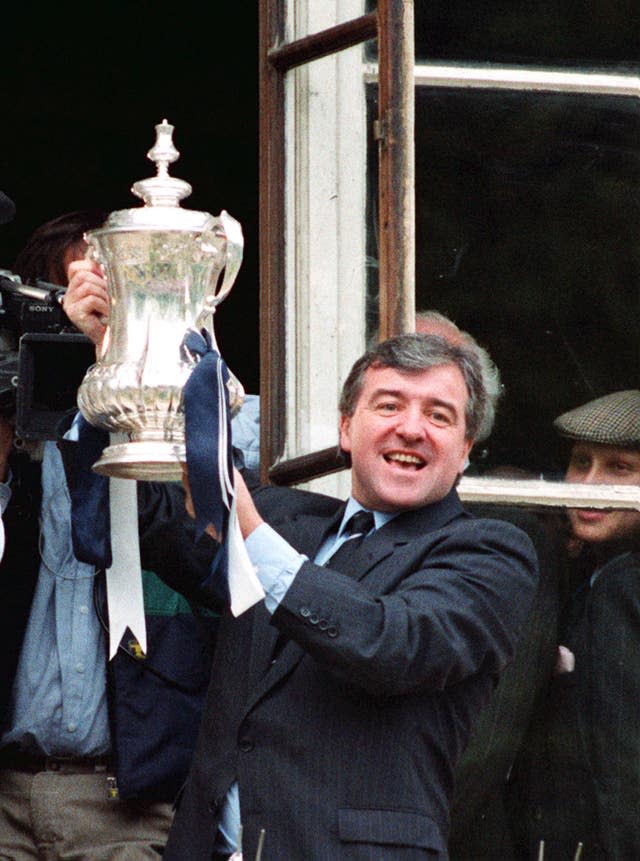

However, Barça only finished second in the league for the next two seasons, also losing in the 1986 European Cup final when Romanian opponents Steaua Bucharest triumphed on penalties following a goalless draw.
His dismissal in September 1987 was followed by his appointment as Tottenham manager in October. He brought Paul Gascoigne to the club and rejoined Lineker.
Venables led Spurs to FA Cup glory in 1991 with a 2–1 win over Nottingham Forest in the final, although the match was overshadowed by Gascoigne’s cruciate ligament injury.
When Venables and Alan Sugar won the takeover battle for the club in June, he was also appointed CEO, but his relationship with the then chairman gradually deteriorated.
In 1993 Sugar sacked him, and later that year the BBC program Panorama alleged misconduct linked to Venables’ companies, to which he responded by threatening defamation action.
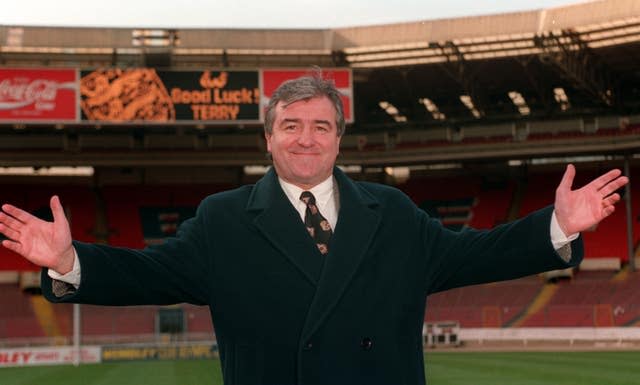

Despite some damage to his reputation, he was appointed England manager in January 1994, and his first game in charge came two months later when Denmark were defeated 1–0 at Wembley.
In August, police also dropped their investigation into allegations that he paid Clough a £50,000 stoppage to arrange a player transfer.
In January 1996, Venables revealed that he would step down as England manager after that year’s European Championship to concentrate on ongoing legal proceedings, but the impending end of his reign could not take the shine off what was almost such a glorious summer for the became hosts.
With Arsenal’s Tony Adams captaining the heart of the defence, Alan Shearer in form up front and a rejuvenated Gascoigne pulling the strings in midfield, they advanced to the knockout stages after a 4-1 win over the Netherlands still ranks as one of the English players. best performances.
Venables’ use of the ‘Christmas Tree’ formation was considered a key factor in their success, which also included a victory over Spain on penalties in the quarter-finals.
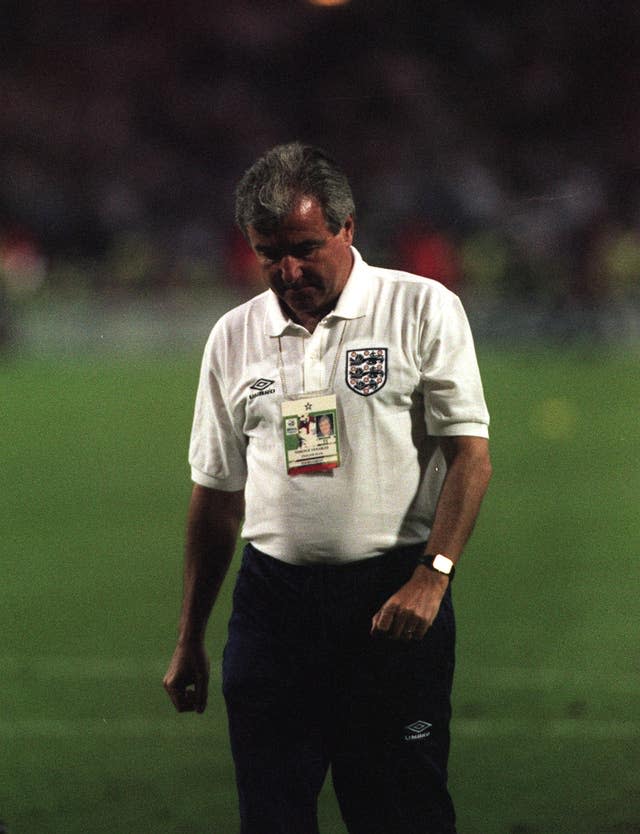

England produced another memorable performance in the semi-finals, but lost on penalties to eventual winners Germany. Despite the brutal nature of the defeat and the fact that it turned out to be his last game as England manager, he later described that summer as the “best time of my life”.
In July, Venables made an unexpected return to the sport as Portsmouth’s director of football and in November he was appointed manager of Australia, also becoming chairman of Portsmouth, after purchasing the club for £1.
In January 1998, he resigned from his role as chairman and also agreed to a Supreme Court order banning him from holding directorships in companies for seven years.
His return to Palace as manager in April was short-lived, but he was recruited again in December 2000, this time by struggling Middlesbrough.
After leaving after guiding them to Premier League survival, he returned in July 2002 for one final job in club management, this time at financially troubled Leeds.
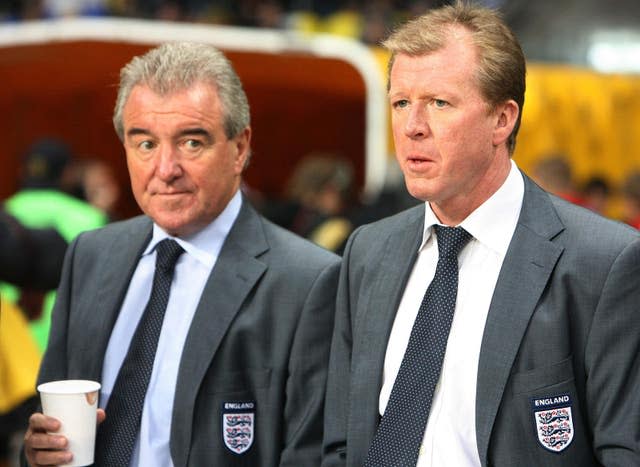

The sale of key players including Rio Ferdinand, Robbie Fowler and Jonathan Woodgate added to their plight and in March, as the threat of relegation loomed, he was sacked again.
Venables surprisingly returned to England as assistant to new manager Steve McClaren in the summer of 2006. After failing to qualify for Euro 2008, they were sacked in November 2007.
After dabbling in clubs and real estate, his latest business venture began in 2014 when he opened a boutique hotel and restaurant in Penaguila, Spain, with his wife Yvette.
Venables, who died on Saturday, is survived by his wife and daughters Tracey and Nancy.